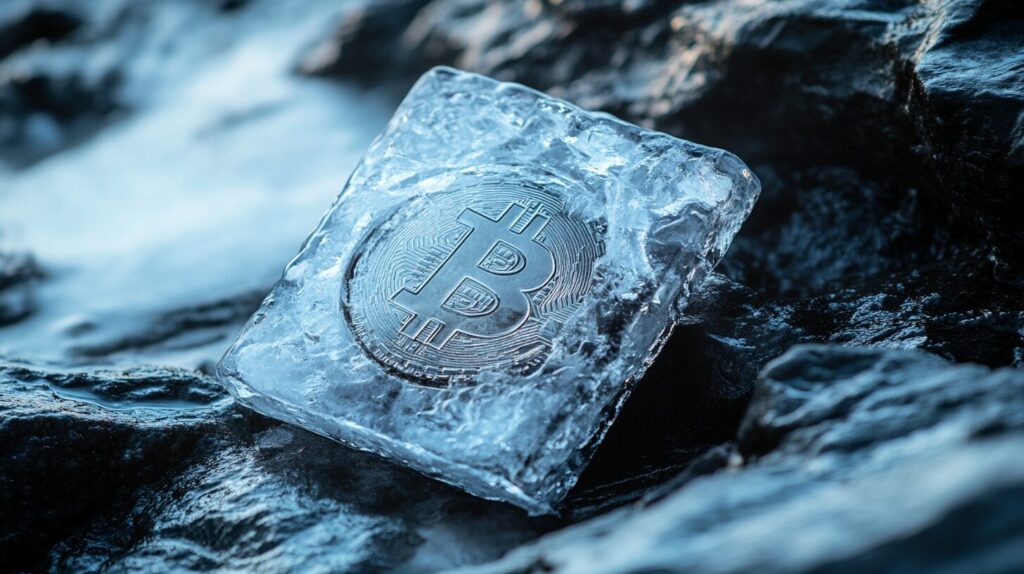A cold wallet, also known as a cold storage wallet, is a type of cryptocurrency wallet that is not connected to the internet. It is considered one of the safest ways to store cryptocurrencies because it significantly reduces the risk of being hacked or having funds stolen.
Definition of Cold Wallet in Cryptocurrency
A cold wallet is a type of cryptocurrency wallet that is not connected to the internet, making it significantly less susceptible to hacking and online threats. It stores the user’s private keys offline, ensuring that the digital assets remain secure from cyber-attacks. Cold wallets are considered the gold standard in cryptocurrency security due to their offline nature.
Why Do You Need a Cold Wallet?
Cold wallets are essential for anyone looking to safeguard their cryptocurrency investments. They provide a high level of security by keeping private keys offline, away from potential online threats. This is particularly crucial for individuals holding large amounts of cryptocurrency, as it minimizes the risk of hacking, phishing, and malware attacks. Additionally, cold wallets offer peace of mind, knowing that your assets are safe even if your online devices are compromised.
Types of Cold Storage
There are several types of cold storage methods available, each with its own level of security and convenience:
- Hardware Wallets: These are physical devices designed to securely store private keys offline. Examples include Ledger and Trezor.
- Paper Wallets: This method involves printing the private keys on a piece of paper, which can be stored in a secure location.
- Offline Software Wallets: Software wallets that are not connected to the internet and are used to store private keys.
- Air-Gapped Computers: Dedicated computers that never connect to the internet and are used solely for generating and storing private keys.
How Does Cold Storage Work?
Cold storage works by isolating the private keys from internet-connected devices. When a transaction needs to be made, the transaction details are prepared on an online device, but the signing process, which requires the private keys, is done on the offline device. This method ensures that the private keys never come into contact with the internet, thus preventing any possibility of online theft.
Is Cold Wallet 100% Safe?
While cold wallets are incredibly secure, they are not 100% foolproof. Physical damage, loss, or theft of the wallet itself can still pose risks. To ensure maximum safety, follow these methods:
- Backup: Always keep multiple backups of your private keys in different secure locations.
- Physical Security: Store the wallet in a safe place, such as a safe deposit box or a home safe.
- Password Protection: Use strong, unique passwords and enable any additional security features offered by the wallet.
- Regular Updates: Keep your hardware wallet firmware up to date to protect against any vulnerabilities.
How to Create a Cold Wallet
Creating a cold wallet involves a few steps, depending on the type of cold storage you choose:
- Hardware Wallet: Purchase a reputable hardware wallet, follow the setup instructions, and transfer your cryptocurrencies to the wallet.
- Paper Wallet: Use a secure offline device to generate a paper wallet, print the private keys, and store them safely.
- Offline Software Wallet: Download a wallet software on a device that will remain offline, generate the keys, and securely store the device.
What are the Disadvantages of a Cold Wallet?
Despite their security benefits, cold wallets come with some drawbacks:
- Inconvenience: Accessing your funds requires more steps compared to online wallets.
- Cost: Hardware wallets can be expensive, and managing multiple backups can add to the cost.
- Physical Risks: Loss, damage, or theft of the physical wallet can result in loss of funds if backups are not properly maintained.
How Much Does a Cold Wallet Cost?
The cost of a cold wallet can vary significantly depending on the type and brand. Hardware wallets typically range from $50 to $200, with higher-end models offering more features and better security. Paper wallets are virtually free, but you may incur costs for secure storage solutions. Offline software wallets can also be low-cost but may require investment in a dedicated offline device.
Which is Better: Hot Wallet or Cold Wallet?
Choosing between a hot wallet and a cold wallet depends on your specific needs. Hot wallets are connected to the internet and offer greater convenience for frequent transactions. However, they are more vulnerable to online threats. Cold wallets, on the other hand, provide superior security by keeping private keys offline, making them ideal for long-term storage of significant amounts of cryptocurrency. For the best of both worlds, many users opt for a combination of both, using hot wallets for daily transactions and cold wallets for long-term storage.




